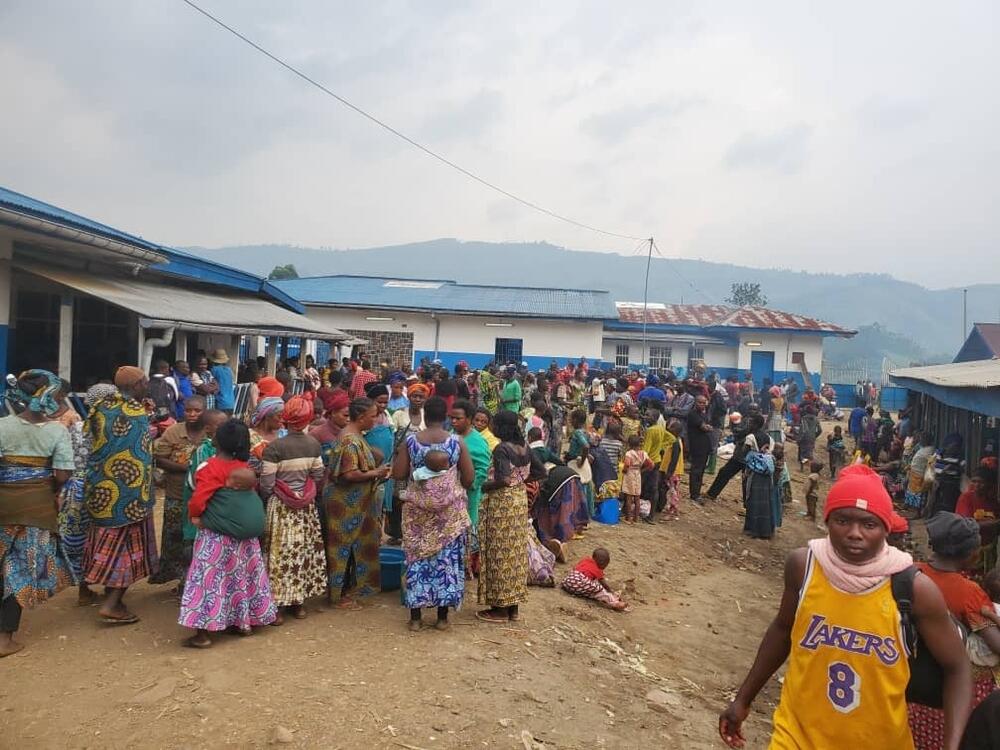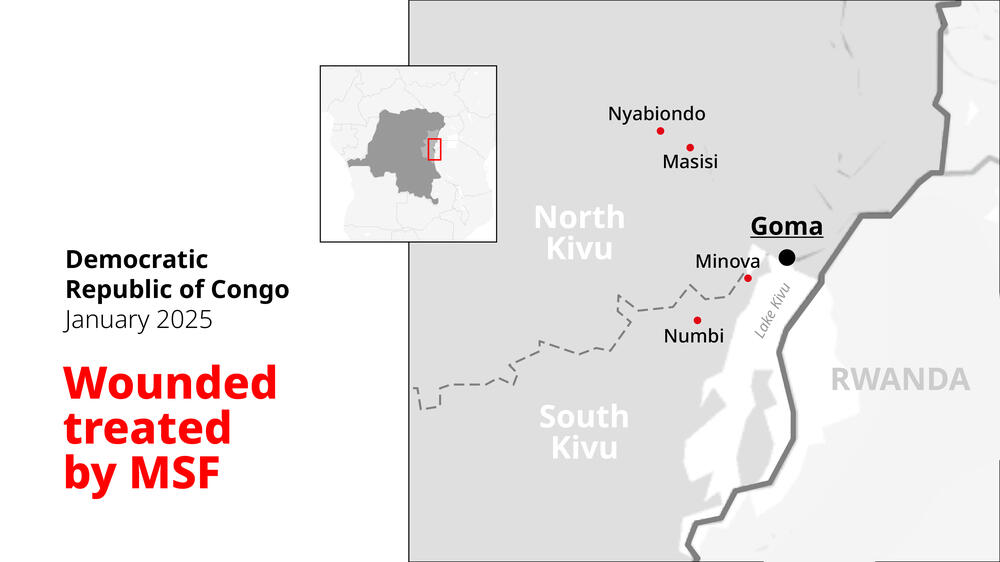DRC: More than 10,000 people seek refuge in Masisi hospital and MSF base
Major violent clashes in the territory of Masisi, North Kivu, between the armed group M23/AFC and the Congolese army, backed by allies, have led to many people fleeing for safety.
According to OCHA (United Nations Office for the Coordination of Humanitarian Affairs) some 102,000 people have fled their homes in the eastern area in the Democratic Republic of Congo (DRC) in less than a week.
As fighting continued in and around Masisi town on 9 January, thousands of people including residents, MSF and Ministry of Health staff, and their families sought refuge in the Masisi General Hospital and the Médecins Sans Frontières / Doctors Without Borders (MSF) base.
“It's difficult to estimate their exact number, but I would say that more than 10,000 people are still sheltering there, the vast majority of them women and children,” said Romain Briey, MSF's project coordinator in Masisi.
“We are starting to have some concerns because the sanitation facilities are not sufficient to meet their basic needs,” he continues.
“Latrines are starting to overflow, and we are doing our best to respond to this situation. But the severe lack of humanitarian responders in the area is making things difficult.”

Help us prepare for the next emergency
Treating the wounded
This is not the first time that these places have seen such an influx of people seeking safety.
Last week, people had already sought refuge in the Masisi General Hospital and the Nyabiondo referral health centre.
Since then, MSF and Ministry of Health teams have taken action to treat wounded people. Between 2 and 9 January they treated 77 injured people.
“Today, in addition to treating the injured and continuing to provide regular care, the teams are trying to support the refugee families in the facilities by ensuring access to drinking water and medical care,” explains Romain Briey.
“But there will soon be a need to provide food if the situation continues.”
The security situation in the area is also affecting MSF's ability to refer patients in a critical condition to Goma and to deploy teams elsewhere in the territory. This makes it impossible to assess needs elsewhere in the territory.
MSF in the Masisi territory
Given the scale of the fighting, MSF calls on all parties to the conflict to continue to guarantee the safety of patients, teams and refugees in health and humanitarian facilities.
“The safety of the population inside the hospital cannot be guaranteed if the warring parties do not respect their obligations under international humanitarian law," said Dr Lucien Kandundao, chief medical officer from the Ministry of Health in the Masisi health zone.
“Fortunately, this respect has been guaranteed so far, and we are working at our level to ensure that the hospital's neutrality is also fully respected and that there are no armed or uniformed persons inside the hospital.”
MSF teams have been supporting the Ministry of Health in Masisi since 2007. MSF currently supports the General Referral Hospital, the Nyabiondo Referral Health Centre, and several other health centres nearby.
MSF and the Democratic Republic of Congo
The second-largest country in Africa by area, the Democratic Republic of Congo (DRC) is riven by conflict. It has endured decades of multiple overlapping crises and severe limitations in medical capacity.

